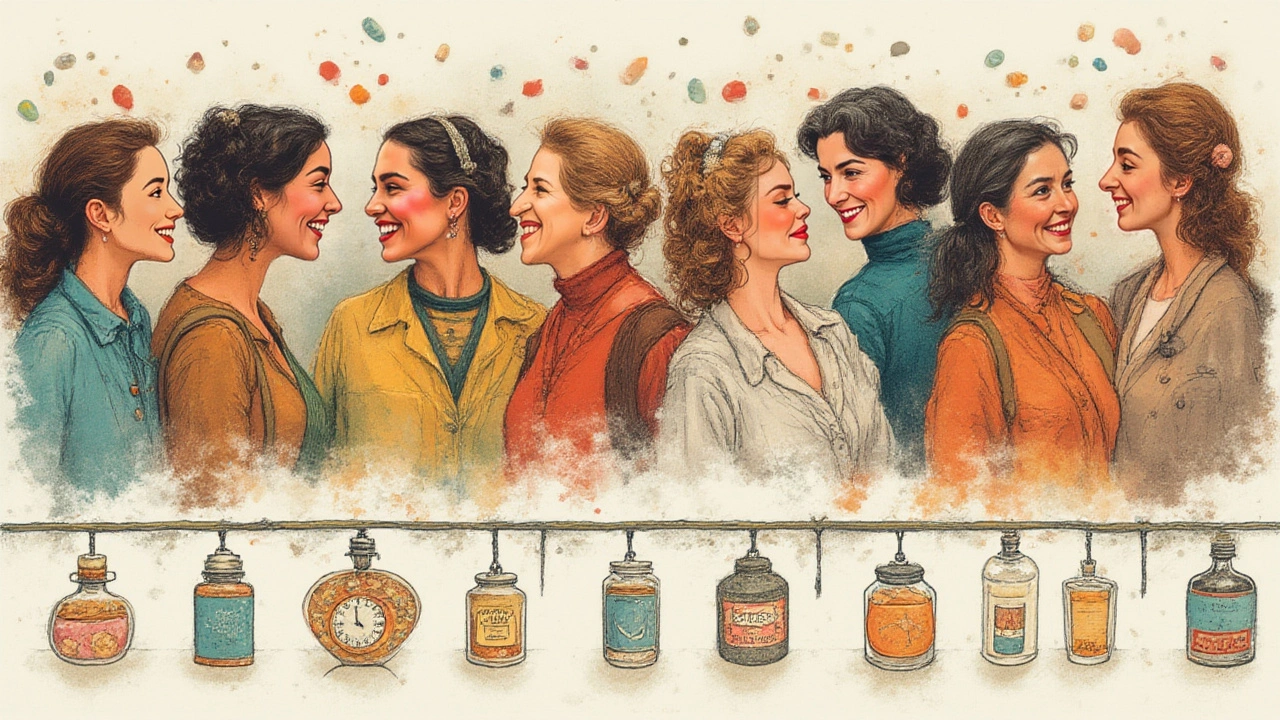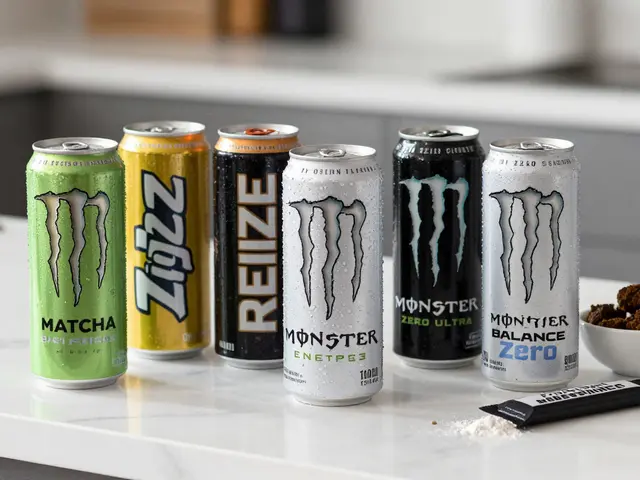Women's Health: Modern Pharmaceutical Solutions for Real-Life Problems

Picture this: You're in your thirties, juggling work, family, social life, maybe even that yoga class you never thought you'd like. Suddenly, your phone buzzes—another ad for some miracle women's supplement. It's loud, colourful, and uses the word 'empowering' five times. But does any of this actually work? That's a real question for women everywhere, from suburbs of Brisbane to skyscrapers in Singapore. Women's health has always been wrapped in mysteries, tales, and sometimes stigma. This is finally starting to change, thanks to a new wave of pharmaceutical solutions grounded in science, not just slogans. Let’s untangle what’s real, what’s hype, and what works for women’s health today.
The Revolution in Pharmaceuticals for Women's Health
Just a decade ago, 'women’s health' often meant talking about periods and pregnancy—maybe tossing in menopause for good measure. But it’s 2025 and the pharmaceutical world has caught up. Now, women expect more. They want solutions that respect their experiences—pain, pleasure, hormones, choices, everything. Pharmaceutical companies are racing to deliver, but not every pill or patch makes it to the winner’s circle. Take endometriosis, for example. For ages, women were told to "just cope" with the pain. Then, in 2023, a non-hormonal treatment using GnRH antagonists made TGA news in Australia for reducing pain without sending hormones off a cliff. Suddenly, thousands found relief and could function normally at work or school. That’s more than a win—it’s a paradigm shift.
Contraception, too, has exploded in options. Beyond the age-old pill (which, fun fact, is still the most prescribed in the world), implants and IUDs have levelled up. Now, the "smart" IUD approved in 2024 can be controlled with an app, so women can track fertility to the exact day, and side effects drop by up to 60%. These improvements are built on mountains of data: a study published by the Australian Institute of Health and Welfare in December 2024 showed women in their twenties and thirties reported 45% fewer disruptions to daily life thanks to customizable pharmaceutical products. Shots that used to be once every month? Some now last for six months, reducing the endless cycle of remembering, rescheduling—or worse, missing. This is about control as much as convenience.
Extending into menopause, pharmaceutical innovation keeps picking up speed. Hormone replacement therapies (HRT) have been re-designed to lower risks for breast cancer and cardiovascular issues, which scared women off for years. Now, selective estrogen receptor modulators (SERMs) and plant-based HRT give the benefits—hot flash relief, bone health—without heavy risks. And here’s a surprising touch: researchers at the University of Queensland found in 2024 that women who used the latest micronised progesterone HRT slept 29% better compared to classic therapies. Imagine what snoozing through the night does for mental health and mood. Sleek, tailored pharmaceuticals aren’t just about patching up problems. They’re about giving women tools to feel better, move better, work better.

What’s Working: Evidence, Side Effects, and New Frontiers
Let’s get honest about those fine-print matters: results and side effects. For ages, the pharmaceutical industry’s answer for PMS or chronic pain was basically “have a painkiller, grin and bear it.” Today that doesn’t cut it. Now, real-life data is what counts. For example, a 2025 meta-analysis at Monash University showed that combined oral contraceptives reduced the risk of ovarian cancer by up to 40% if used for over 10 years, but the same analysis warned of a subtle increase in blood clot risk for anyone over 35 who smokes. So, it’s precision medicine—what works perfectly for one woman isn't for everyone.
It’s not just about the reproductive system either. Pharmaceutical research is stretching into conditions mostly faced by women, like autoimmune disorders. Lupus, which affects nine women for every one man, now has tailored monoclonal antibody treatments. These drugs—approved for first-line therapy by the TGA in late 2024—showed a 31% improvement in symptom control compared to old drugs. That’s not a small difference when family, jobs, and daily life depend on it. The same wave of innovation hit for osteoporosis. For decades, women over 50 just braced themselves for bone thinner drugs with loads of side effects. New sclerostin inhibitors (first introduced mid-2023) proved in clinical trials at Royal Brisbane Hospital that fracture risk dropped by 45%, with fewer stomach issues. Medications are finally catching up to women’s needs, not just tolerances.
Yet, let’s be honest—the best drugs in the world still need careful handling. Side effects can be sneaky. Migraines, mood swings, weight gain? Always discuss new symptoms with your doctor, no matter how small. Apps have cropped up like mushrooms to help track what works and what doesn’t. For example, "WellaTrack" lets women log their meds, cycles, and side effects, then get feedback—so you don’t just fall through the cracks. It’s smart to stay skeptical. If a product says “side effect-free,” question it. Trusted brands in Australia give full transparency on risks. Always check the Consumer Medicine Information (CMI) sheet, and remember, if something feels wrong, your body is often right.
Here’s a look at key pharmaceutical advances and what real data shows about their impact:
| Condition | New Pharmaceutical Solution (2023-2025) | Notable Effectiveness Statistic |
|---|---|---|
| Endometriosis | GnRH Antagonist (non-hormonal) | Pain reduced in 63% of users in year-long study |
| Contraception | "Smart" IUD, App-controlled | Side effects decreased by 60%; usage up by 40% |
| Menopause | Plant-based HRT, SERMs | Hot flash frequency reduced by 55% |
| Lupus | Targeted Monoclonal Antibodies | Symptom improvement in 31% above standard care |
| Osteoporosis | Sclerostin Inhibitors | Fracture risk dropped 45% in women over 50 |
Always remember: Pharmacy shelves aren’t magic. Every choice comes with pros, cons, and a healthy dose of "what fits me right now." It’s a moving target, and your needs aren’t a static list.

Tips, Insights, and Navigating the Future of Women's Wellness
Everyone wants to know—what actually works and how do you get the best out of pharmaceutical options? A good place to start is honesty with yourself. Track your symptoms with one of the many app-based journals, even just the Notes on your phone. If you’re thinking about new contraception or medication, jot down any patterns: mood, sleep quality, headaches, or anything new. Honest data beats guesswork. When you visit your GP, you’ll have a clear story beyond just "I’m not feeling right." My best tip: don’t play superhero when things go wrong. Unusual pain, bleeding, or changes? Trust your gut (and don’t Google at 2 a.m.). Call your doctor.
For younger women, social media can be murky, and trends move fast. One week it’s all about herbal supplements, the next it’s bioidentical hormones. Don’t believe hype without evidence. Yes, supplements have their place—but if it’s not TGA-registered, treat it like the wild west. Instead, check medications and supplements with the National Prescribing Service (NPS) database for Australia. Never be afraid to ask your pharmacist those "awkward" questions—be it about vaginal creams, birth control, or hormone patches. They’ve heard it all before, trust me.
Remember that health isn't just about fixing what's wrong; it's about making the right choices for you long term. Pharmaceutical solutions are now pivoting hard to preventive care. Think: HPV vaccination, which cut cervical cancer rates in Australia by 46% since 2007, and mammographic screening paired with targeted pharmaceuticals, making early breast cancer treatment more successful than ever. You want to harness this momentum.
It helps to stay up to date—not only with your medicines but also monthly government updates, which now push SMS alerts to keep women informed about recalls and new approvals. If you’re a traveler, always check if your prescription drugs are legal in your destination; rules can change overnight. Australia has digital health passports, so you don’t get stuck at airport customs with something banned abroad. Want to discuss your care with other women facing the same thing? Trusted online forums linked to local hospitals are gold. They offer insights that even the best GP can't always cover.
If you’re planning for a family, fertility innovations are making life less stressful. Personalised ovulation monitors and prescription leuprorelin (first-line endo treatment) mean fewer wasted cycles and more clarity. Postpartum, don’t ignore emotional health—pharmaceutical support for postpartum depression is both safer and more effective than in years past, with SSRIs and new fast-acting neurosteroid formulas hitting markets just two years ago. Nearly 87% of Australian women with moderate postpartum symptoms now report solid improvement in less than six weeks.
What’s next? Expect more 'bespoke' medicines—customised doses, DNA-based predictions for side effects, and maybe a digital pill that reminds you when to take it and talks to your phone. Whatever the future holds, don’t let the noise drown out your own experience. You’re the expert on your body. Pharmaceutical solutions are finally listening—maybe for the first time ever.






Comments (9)
Patrick Tiernan
18 Jul 2025
So here we go again, another thread pretending like pharmaceuticals have cracked the code on women’s health in 2025. Honestly, I’m skeptical. The article makes it sound like problem solved, but where’s the real-world nuance? Women's health is complex as hell, way beyond just popping a pill.
Also, can we talk about how they claim "practical advice" but don’t dive into social determinants? It’s all so surface-level. I mean, if it’s really about helping women at all ages, then why does it always boil down to convenient pharma fixes instead of addressing lifestyle or systemic issues?
Don’t get me wrong, I’m not against medicine, but the drama here is in how this topic is always over-hyped while under-delivering actual empowerment. It’s like a rerun of the same narrative every few years.
Cynthia Lamont
18 Jul 2025
Honestly, Patrick’s right on some points but I think you’re missing the point if you just dismiss this as some shallow pharma PR stunt. The fact that they provide honest tips and up-to-date facts is a breath of fresh air in an ocean of misinformation. Seriously, women get bombarded daily with contradictory advice about their health.
But yes, the treatment solutions should go beyond just meds, like lifestyle stuff and mental health. It’s super annoying how these big pharmaceuticals oversell and make it all look like a cure-all.
Still, better than nothing. Hopefully, they keep evolving, coz women get shortchanged too often in medical research and real care.
Liam Hesmondhalgh
18 Jul 2025
Alright, let me just say this: if you’re going to talk about "modern pharmaceutical solutions," at least get your grammar right. It’s Women’s Health, yes, possessive, not some vague plural nonsense. Sloppy writing just undermines any credibility.
Also, the whole narrative reeks of some nationalistic bias I see everywhere these days, like pharmaceutical breakthroughs only happen in select countries? Get outta here. Science is global regardless of borders.
So before everyone jumps on the “pharma is saving women’s lives” bandwagon, read critically. There’s always more beneath the surface, and lazy reporting never helps anyone.
Kirk Doherty
18 Jul 2025
Chilling on this one, guys. The post gives a good snapshot without piling on drama or making things complicated. Yes, pharma’s role is huge, but it’s just one piece of the puzzle in women’s health. People forget there are so many variables — genetics, environment, lifestyle.
Practical advice helps lots, especially if it’s digestible and not overwhelming. So not all critiques gotta be harsh; sometimes simple info goes a long way in creating awareness.
Let’s keep the convo civil though, it can be nuanced and helpful at the same time.
Destiny Brumbaugh
18 Jul 2025
Look, as an American, I gotta say these so-called "modern solutions" always seem to come with a price tag that puts them outta reach for a lot of women. We talk empowerment but forget that access is not universal.
Also, pharma companies are not saints—they push whatever brings the most profit, not necessarily what best serves women’s health in the long term. This isn’t just some conspiracy; it's common sense given how the industry operates.
We need real reform, not just shiny new meds that treat symptoms instead of causes. Where’s the focus on prevention in all this?
Sara Escanciano
18 Jul 2025
You nailed it. It’s infuriating how everything is wrapped up in marketing jargon that pretends like women’s health problems are just a prescription away from being solved.
The moral issue here is that by relying so heavily on pharma solutions, we’re sidelining education, healthy living, and the structural changes needed to truly improve outcomes.
Honestly, the article could’ve done a better job highlighting ethical concerns, but no, it just blushes past all that to keep the pharma narrative looking shiny and perfect.
This kind of glossing over is what keeps the industry’s bad habits alive.
Elmer Burgos
18 Jul 2025
I really appreciate the practical approach the post takes. Medicine keeps evolving, and it’s true what they say: we live in a better time for women’s health than before. But it’s also about empowering women to understand their bodies and their options.
The real success lies in combining modern pharma solutions with lifestyle awareness, access to education, and thoughtful healthcare support.
Would love to see more posts that emphasize that balance rather than positioning pharmaceuticals as the only answer.
Jason Townsend
18 Jul 2025
Wake up people. The ‘modern pharma solutions’ they’re hyping? It’s a smokescreen. Behind the scenes, it’s all about profits and control — pushing drugs loaded with side effects while silencing alternative health approaches.
This whole mainstream narrative keeps you distracted and compliant. The real problem is the pharmaceutical cartel controlling what you think about women’s health.
Don’t buy into the sanitized PR. Question everything, dig deeper, or you’ll just keep paying the price.
Antwan Holder
18 Jul 2025
The drama surrounding women’s health pharmaceutical solutions is just a reflection of our chaotic society. We’re caught in a cycle of idealizing and vilifying the very tools designed to help.
This article, while a good attempt, misses the existential gravity of what women face biologically, socially, and spiritually. Pharma is only a thin veil draping over a deeper crisis about how we comprehend health in the modern world.
What if the real healing is beyond the pill? That’s a thought worth debating, not just passively consuming bullet points and tips.